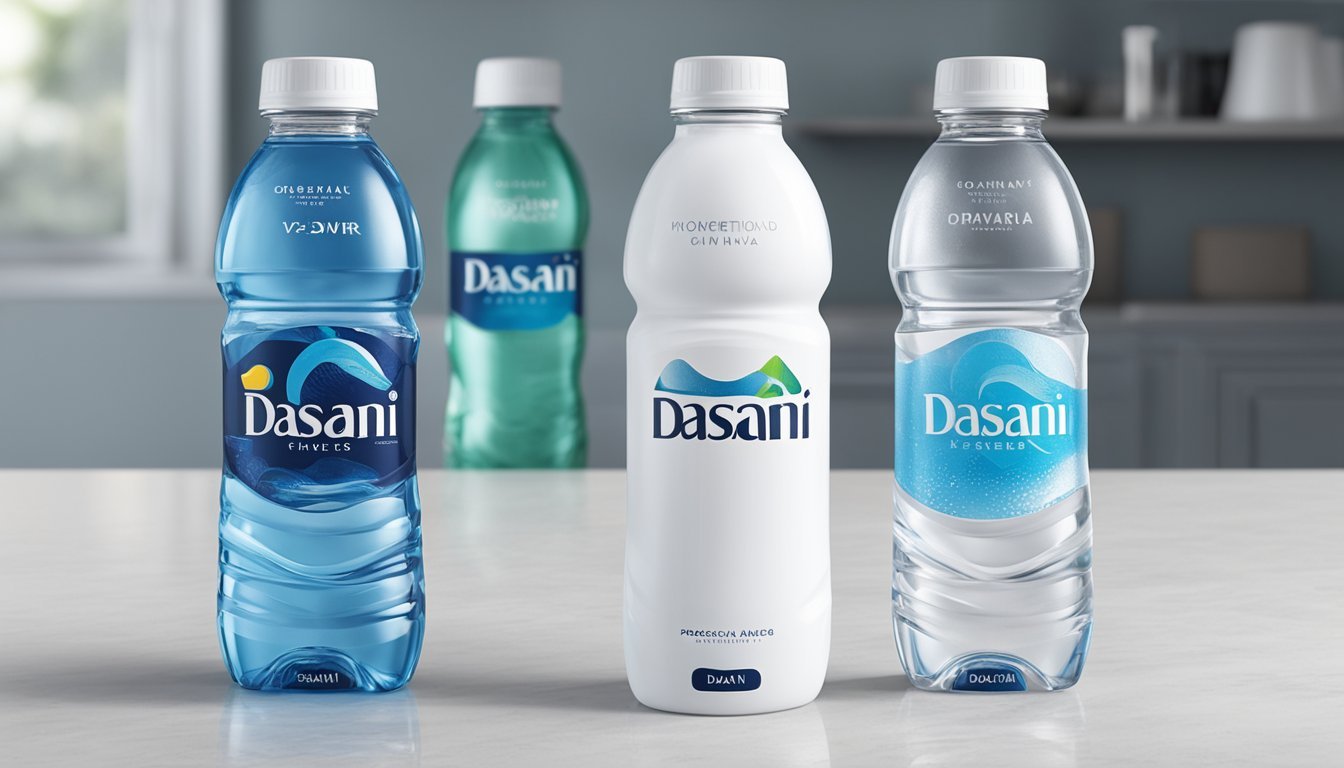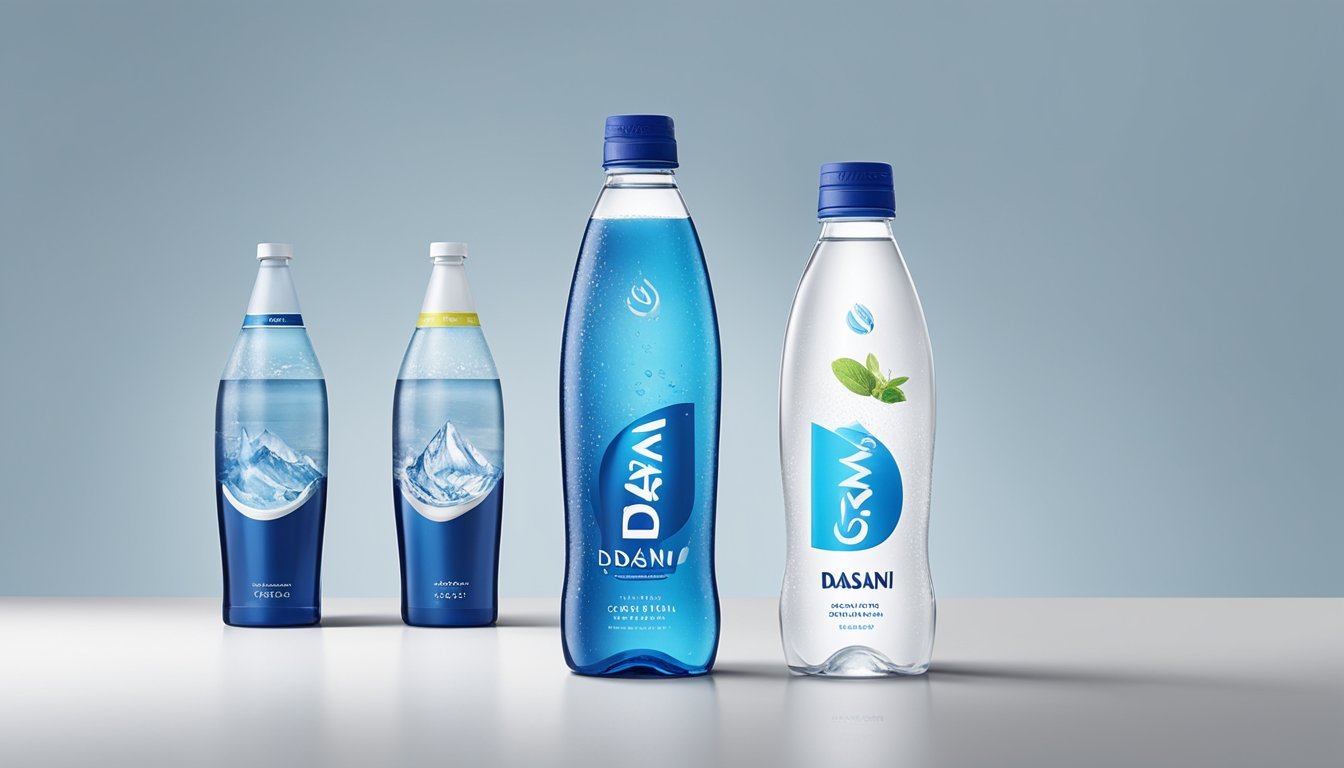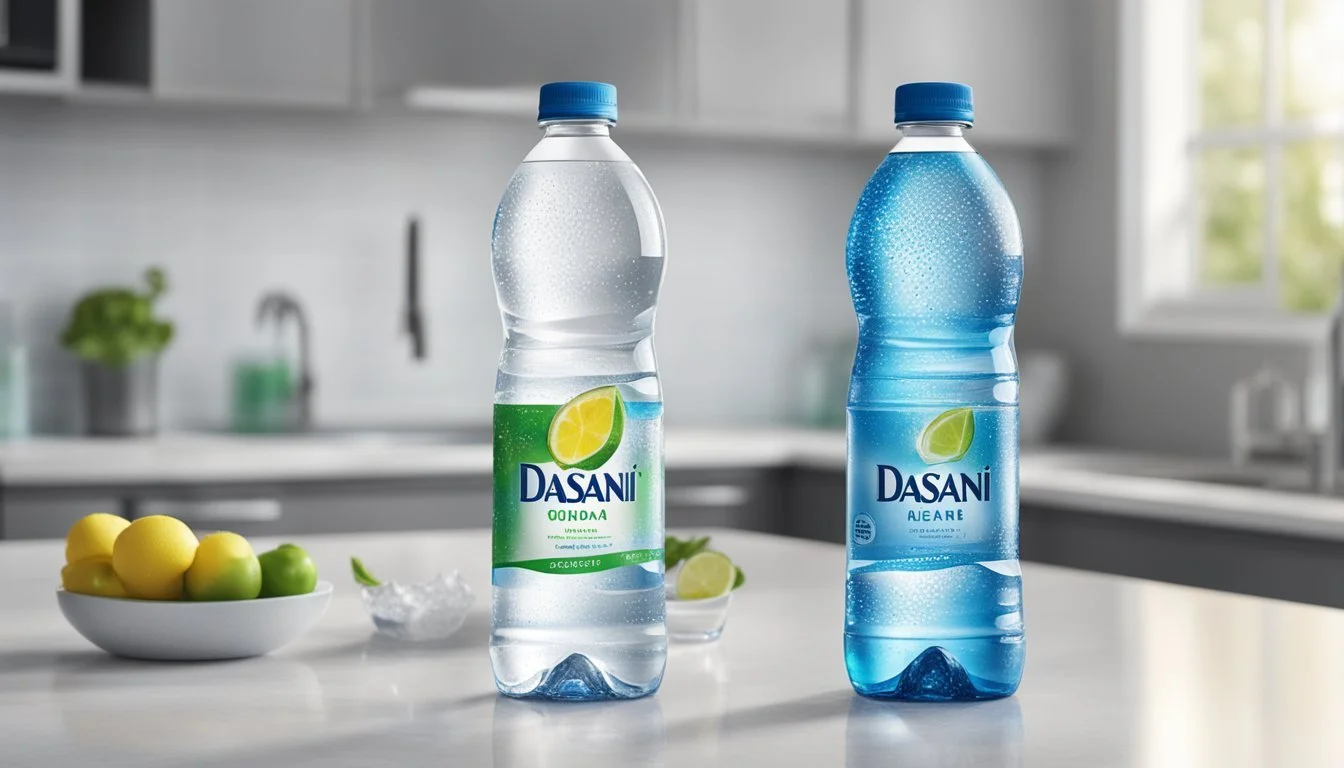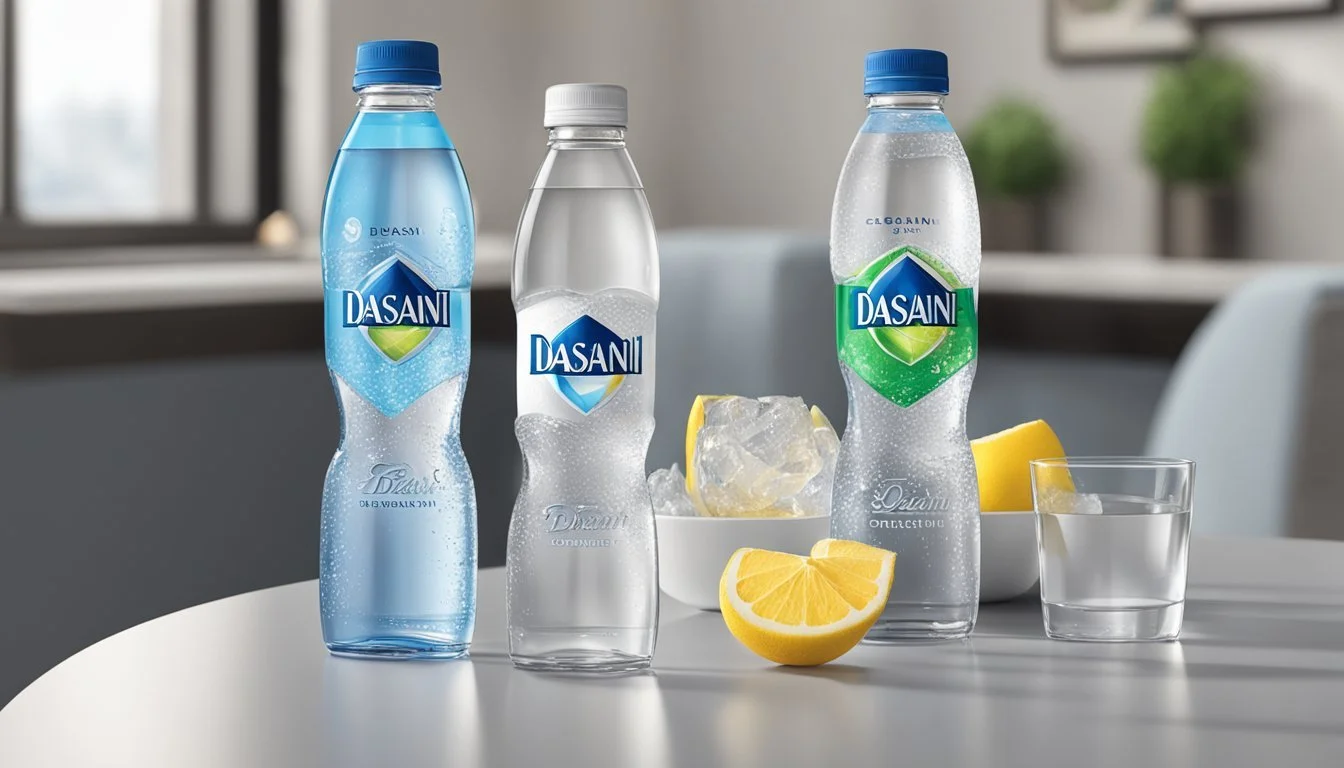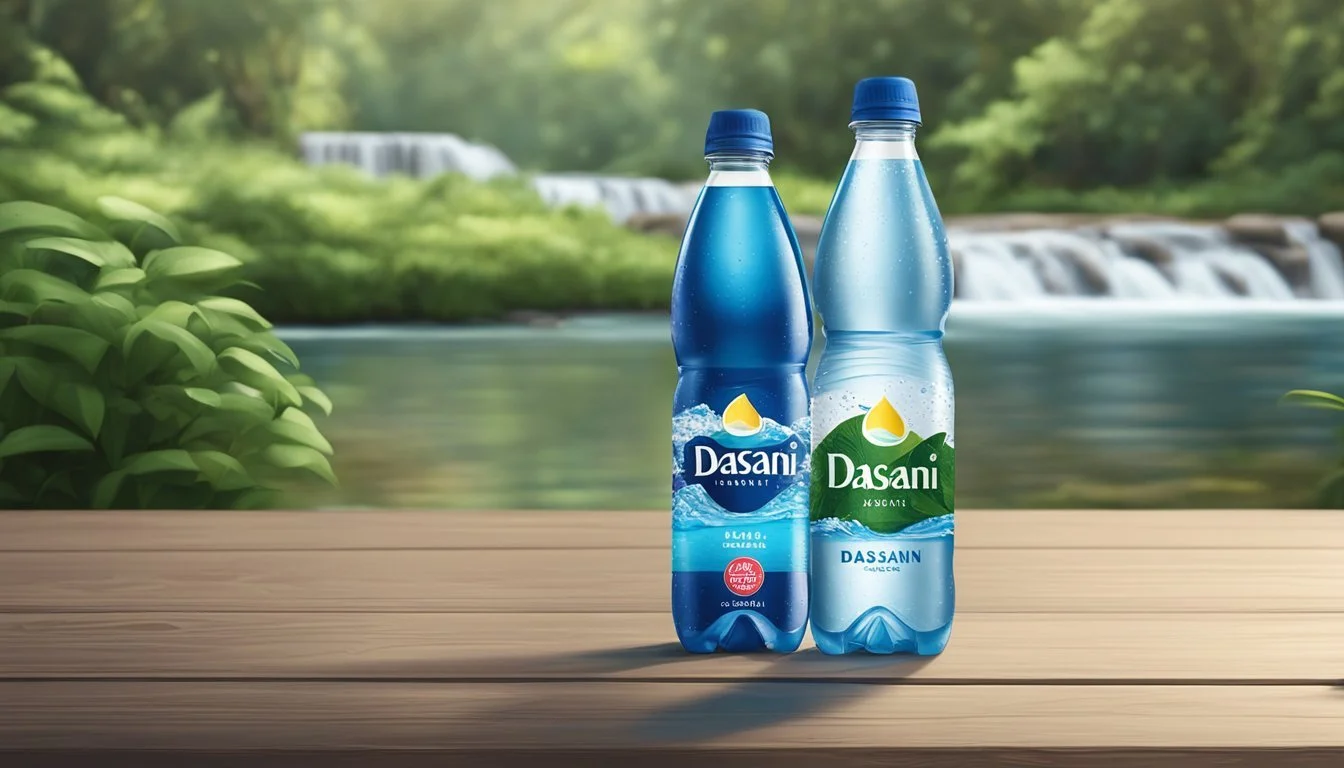Essentia vs. Dasani
Comparing Purity, Taste, and Nutrition
Choosing the right bottled water can be surprisingly complicated, given the numerous options available. When comparing Essentia and Dasani, the differences become clear. Essentia is known for its ionized, alkaline water, which many believe offers superior hydration and various health benefits. On the other hand, Dasani, a product of Coca-Cola, boasts mineral-enhanced purity. For those prioritizing alkalinity and ionization, Essentia tends to stand out as the better choice.
The taste and composition of these waters cater to different preferences. Essentia's higher pH level and ionization might appeal to those looking for a specific hydration profile, while Dasani’s balanced mineral content offers a smooth and consistent taste that's free from any unpleasant aftertaste. The preferences in their mineral makeup thus play a crucial role in a consumer's decision.
With Essentia's focus on advanced purification and alkalinity, and Dasani's emphasis on reliability and taste, each brand offers unique advantages. By understanding these key differences, consumers can make a more informed choice about which bottled water best suits their needs.
Understanding Bottled Water
Bottled water has grown immensely popular due to its convenience and perceived purity. This section explores the growth of bottled water brands and the different types available on the market.
The Rise of Bottled Water Brands
Over the past few decades, bottled water has become a ubiquitous product around the globe. Companies like Nestlé, Coca-Cola (with Dasani), and PepsiCo (with Aquafina) have heavily invested in this market, influencing consumer habits through branding and marketing.
The rise can be credited to factors like heightened awareness of health benefits, distrust in tap water quality, and increasing demand for portable hydration solutions. Bottled water brands often emphasize unique qualities like added minerals, specific filtration processes, or pH levels to differentiate themselves from competitors.
Moreover, premium brands such as Essentia focus on technology-driven enhancements, like ionization and alkalinity, aiming to optimize hydration. Consumers now have an array of choices, from basic purified water to more specialized offerings that cater to specific health trends.
Types of Bottled Water
Bottled water comes in various forms, each catering to different consumer preferences and needs. The primary types include spring water, mineral water, purified water, and alkaline water.
Spring Water: Sourced directly from natural springs, it often contains natural minerals that are absorbed as the water flows to the surface.
Mineral Water: Contains a specific and consistent mineral content, usually sourced from underground reservoirs and naturally protected.
Purified Water: Typically produced by distillation, deionization, or reverse osmosis, ensuring it meets stringent purity standards.
Alkaline Water: Features higher pH levels, achieved through processes like ionization, believed to neutralize acidity in the body and provide additional hydration benefits.
These varieties satisfy different preferences, whether someone seeks natural mineral content, absolute purity, or enhanced hydration effects.
Health and Hydration
Staying hydrated is essential for maintaining crucial body functions, and bottled water can play a key role in this process. Evaluating the health benefits of Dasani and Essentia requires looking at both hydration qualities and the presence of beneficial minerals and electrolytes.
The Importance of Hydration
Hydration supports various bodily functions, from regulating temperature to maintaining healthy skin. Proper hydration helps with digestion, nutrient absorption, and overall energy levels. Water needs can vary based on individual lifestyle, but consistently drinking clean, safe water is universally important.
Dasani, using purified water with added minerals, offers a familiar, accessible choice for daily hydration. Essentia stands out by providing ionized, alkaline water, which some claim enhances hydration levels. Both options contribute to maintaining an optimal balance of bodily fluids essential for health.
Minerals and Electrolytes in Water
Minerals and electrolytes are vital for muscle function, nerve signaling, and fluid balance. Dasani includes a blend of minerals like magnesium sulfate, potassium chloride, and salt to enhance taste. These additions may support electrolyte balance, contributing to overall well-being.
Essentia, with its ionization process, includes electrolytes such as calcium, magnesium, and sodium bicarbonate. This specific blend aims to improve hydration efficiency, especially beneficial during physical activities. The higher pH level in Essentia's water is designed to reduce acidity in the body, potentially offering added health benefits.
By understanding the mineral and electrolyte content in Dasani and Essentia, consumers can make informed choices to support their hydration needs effectively.
Water Quality and Safety
Consumers often prioritize water quality and safety when choosing between Essentia and Dasani. This comparison will review the pH levels, alkalinity, and regulations ensuring safe drinking water.
pH and Alkalinity
Essentia water is known for its alkaline nature with a pH level of around 9.5. It is ionized, which purportedly helps in better hydration and acid-neutralization in the body.
Essentia's alkaline water is produced through a proprietary process that involves purification, addition of electrolytes, and ionization. This makes the water less acidic compared to regular tap water.
Dasani, on the other hand, has a slightly acidic pH of approximately 5.5. It includes purified water with added minerals for taste.
The pH level, which measures the acidity or alkalinity, can impact taste and consumer preference.
Regulations and Standards
Both Essentia and Dasani comply with stringent regulations set by the FDA and EPA. The FDA regulates bottled water under the Federal Food, Drug, and Cosmetic Act (FD&C Act), ensuring that it meets safety standards.
Essentia undergoes a multi-step purification process, including microfiltration and reverse osmosis, to remove contaminants. The water is also tested regularly to adhere to safety standards.
Dasani follows a robust filtration process, which involves reverse osmosis and the addition of minerals such as magnesium sulfate and potassium chloride to enhance taste.
The EPA regulates public drinking water quality under the Safe Drinking Water Act (SDWA) but does not directly regulate bottled water. However, the bottled water industry adheres to these standards to assure consumers of its safety.
Comparing Essentia and Dasani
Essentia and Dasani are two popular bottled water brands, each with distinct approaches to sourcing, filtration, taste, and packaging. These differences can significantly influence consumer preferences.
Source and Filtration
Essentia sources its water from regional suppliers. The water undergoes a multi-step purification process, including microfiltration, reverse osmosis, and ultraviolet exposure. This thorough filtration removes impurities, ensuring a high-purity product. After filtration, Essentia adds electrolytes and ionizes the water to elevate its pH level to approximately 9.5, which is claimed to enhance hydration.
Dasani, by contrast, is primarily municipal water that is thoroughly purified using a process involving reverse osmosis. Dasani also adds a mix of minerals (such as magnesium sulfate, potassium chloride, and salt) to improve taste. The end result is clean water with a neutral pH level, devoid of most contaminants yet maintaining essential mineral content for flavoring.
Taste Profile
Essentia offers water with a smooth, silky texture and a noticeable lack of acidity, partly due to its high pH level. The added electrolytes aim to provide a crisp and clean taste that many users find refreshing. This could appeal to those seeking a more alkaline water option.
Dasani's taste profile is characterized by its slight mineral-enhanced flavor, thanks to the added minerals intended to compensate for the demineralization during the purification process. This gives Dasani a more familiar water taste that some consumers find appealing. The mineral additions make the taste consistent, but not overly distinctive, providing a balanced hydration option.
Packaging and Environmental Considerations
Essentia uses BPA-free plastic bottles and has recently introduced bottles made from recycled materials. Their packaging is designed to be both functional and appealing, catering to an audience that prioritizes health and hydration. They have also begun initiatives to minimize their environmental footprint.
Dasani is noted for its efforts in sustainability. The brand offers bottles made from up to 50% recycled plastic and has plans to move towards fully recyclable products. Their "PlantBottle" packaging uses up to 30% plant-based materials, reducing the reliance on traditional plastic. Additionally, Dasani encourages plastic recycling through various customer engagement strategies.
Both brands demonstrate commitment to providing high-quality products, while their differing approaches to sourcing, filtration, and environmental impact cater to diverse consumer preferences.
Additional Brand Analysis
Essentia and Dasani have different approaches to bottled water, which appeal to varying consumer preferences. This section discusses the distinguishing features of Essentia and Dasani and how they compare to other well-known brands.
Essentia's Unique Qualities
Essentia stands out for its alkaline water, which has a pH of 9.5 or higher.
This brand uses a proprietary ionization process to remove acidic ions and replace them with alkalizing minerals like calcium, magnesium, and potassium. Essentia water is also enhanced through microfiltration and reverse osmosis, ensuring high purity and great taste.
Many consumers choose Essentia for its potential health benefits linked to alkaline water, such as improved hydration and better pH balance in the body.
Dasani: Coca-Cola's Approach
Dasani, owned by Coca-Cola, is known for its widely accessible purified water. It sources its water from municipal supplies, then enhances it with minerals like magnesium sulfate, potassium chloride, and salt for a consistent and clean taste.
The brand utilizes advanced filtering technologies, including reverse osmosis, to ensure the highest purity standards. Dasani's broad distribution network makes it highly available, but some consumers critique it for having an overly "processed" taste.
Comparison with Other Brands
Essentia and Dasani each have unique qualities that set them apart from competitors.
Fiji Water: Known for its natural artesian water sourced from an underground aquifer in Fiji. It is recognized for being "soft" and having a distinctive taste.
Evian: This brand delivers mineral water sourced from the French Alps and is celebrated for its natural origins.
Smartwater: Similar to Dasani, it uses vapor distillation and adds electrolytes but aims for a crisper taste profile.
Poland Spring: Famous for using spring water mainly sourced from Maine, USA, offering a refreshing and natural taste.
Nestlé Pure Life: Provides purified water with added minerals but often ranks lower for its average taste among consumers.
These details highlight how Essentia and Dasani cater to different taste and health considerations, as well as their positioning within the crowded bottled water market.
Consumer Considerations
When choosing between Dasani and Essentia bottled water, taste preferences and health and dietary concerns are critical to making an informed decision. Understanding these factors can help consumers choose the best option for their hydration needs.
Taste Preferences
Many consumers prioritize taste when selecting bottled water. Dasani is known for its clean and crisp taste, achieved by adding a blend of minerals after purification. This process gives it a slight, pleasant tang, appreciated by many but not all.
Essentia, on the other hand, offers an alkaline, ionized water with a pH balance of 9.5, resulting in a smooth, neutral flavor. Some consumers find this more palatable, especially if they prefer less mineral taste.
In blind taste tests, preferences vary widely. While some appreciate Dasani’s distinct taste, others favor the subtler profile of Essentia. Trying both may help consumers decide which suits their palate better.
Health and Dietary Concerns
Health and dietary considerations can significantly impact the choice between these two brands. Dasani is purified and mineral-enhanced, with zero calories, sugars, or sodium. This makes it suitable for those who seek a simple, purified water without added elements that could affect dietary goals.
Essentia emphasizes its high pH level and alkaline nature, which may appeal to those who believe in the benefits of alkalized water, such as improved hydration and balance of body pH. Its lack of calories and sugars also fits well with various dietary preferences.
Both brands are free from calories and sugars, ensuring they won't interfere with weight management efforts. Essentia’s alkalinity may offer additional health benefits, which could be a deciding factor for health-conscious individuals.
Environmental Perspectives
Essentia and Dasani have differing approaches to sustainability and waste management, which can impact their environmental footprint in the United States.
Bottled Water and Sustainability
Essentia emphasizes using alkaline, ionized water which is marketed as being better for hydration. This typically involves more processing, which could have a higher environmental impact. They source their water from various locations, which can increase transportation-related carbon emissions.
Dasani uses mineral-enhanced purified water, employing a rigorous purification process. While this minimizes contaminants, it also adds steps that could contribute to their environmental footprint. Coca-Cola, the parent company, claims to implement water-saving measures in their production facilities.
Recycling and Waste Management
Both brands package their products in plastic bottles, a significant environmental concern due to plastic waste. Dasani bottles are made from 100% recyclable PET plastic and have initiatives to encourage consumers to recycle. They also promote reducing plastic waste by offering smaller caps.
Essentia also uses PET plastic but focuses on creating more robust and reusable bottles. They partner with recycling programs to ensure fewer bottles end up in landfills. Their strategy includes increasing the use of recycled materials in their bottles to limit new plastic production.
Scientific Perspectives
Examining the scientific vantage points of Essentia and Dasani, it is crucial to compare potential contaminants and their impacts on body functions.
Water Contaminants Analysis
When evaluating Essentia and Dasani waters for contaminants, one must consider the presence of lead, heavy metals, arsenic, mercury, and PFAS chemicals.
Essentia undergoes ionization and reverse osmosis, which removes most impurities, offering water that's generally free of contaminants. Independent tests have shown low levels of heavy metals and negligible amounts of PFAS.
Dasani also employs a rigorous purification process, including reverse osmosis and mineral enhancement. Studies indicate that Dasani's mineral content and potential contaminants are well within safety standards, making it similarly safe for consumption.
The Role of Water in Body Function
Water plays a critical role in numerous body functions such as temperature regulation, digestion, and joint lubrication.
Essentia, with its alkaline nature (pH ~9.5), is believed to help balance the body's pH levels, potentially benefiting acid-related issues. Its high electrolyte content can aid in rapid rehydration, especially after intense physical activity.
Dasani contains a blend of minerals like magnesium, potassium, and calcium, which support various bodily functions, including nerve signaling and muscle contraction. Despite a lower pH range (~5.0-7.0), it provides effective daily hydration.
Future Trends in Bottled Water
The bottled water industry is evolving rapidly, driven by technological advancements and changing consumer preferences. Key developments include innovative filtration methods and shifts in consumer behavior influenced by health trends and environmental concerns.
Innovations in Water Filtration
Cutting-edge filtration processes are revolutionizing the bottled water market. Alkaline water, known for its higher pH level and potential health benefits, is gaining popularity. Essentia has capitalized on this trend with its ionized, alkaline water.
Ultraviolet (UV) light filtration is another significant advancement. Several brands are adopting UV technology to ensure water purity without chemicals or additives. Carbonated water is also benefiting from these innovations, with new filtration techniques enhancing its quality and taste.
These technologies not only improve water quality but also accommodate a variety of consumer preferences, from enhanced taste to potential health benefits, thereby impacting purchasing decisions.
Shifts in Consumer Behavior
Consumer behavior is shifting towards health-conscious and environmentally friendly choices. More water drinkers are opting for brands like Essentia that offer alkaline water with perceived health benefits. This shift is supported by consumer reports highlighting the advantages of different water types and filtration methods.
Sustainability concerns are also driving changes. Consumers are increasingly demanding eco-friendly packaging and filtration practices. Brands are responding with recyclable bottles and sustainable production methods.
Lastly, there is a growing preference for transparency in labeling, enabling consumers to make informed choices. As these trends continue, the bottled water industry is likely to see further diversification and innovation.
More About Essentia
Essentia vs Cascade Mountain: Which Bottled Water is Better?
Essentia vs Hawaiian Springs: Which Bottled Water is Better?
Essentia vs Icelandic Glacial: Which Bottled Water is Better?
Essentia vs Kirkland Signature: Which Bottled Water is Better?
Essentia vs Mountain Valley Spring Water: Which Bottled Water is Better?
Essentia vs Nestle Pure Life: Which Bottled Water is Better?
Essentia vs Richard's Rainwater: Which Bottled Water is Better?
Essentia vs Talking Rain AQA: Which Bottled Water is Better?
Essentia vs Whole Foods Italian Still Mineral water: Which Bottled Water is Better?

